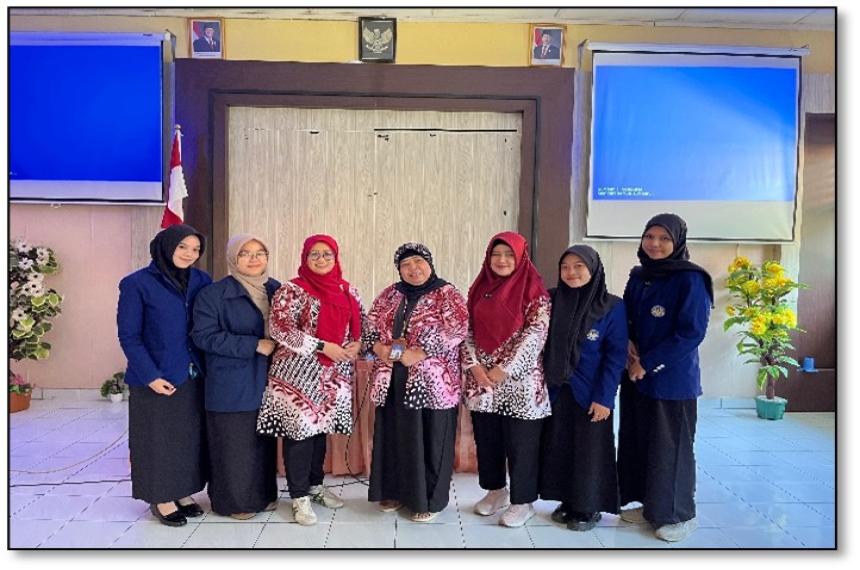The Lecturer Team of the Mathematics Education Master's Program, held a technical training for the Junior High School Mathematics Teacher Working Group in Kulon Progo.
Submitted by adm1n on Fri, 2025-07-18 17:12
The Magister pf Mathematics Education Study Program Faculty Team at Yogyakarta State University (UNY) is collaborating with the Mathematics Subject Teacher Working Group (MGMP) of Kulon Progo District Junior High Schools (SMP) to hold a Technical Guidance (Bimtek) activity focused on the mathematics learning approach using the Deep Learning concept. This activity is scheduled at SMPN 1 Pengasih, Kulon Progo, on August 7 and 21, 2025. The first meeting on August 7 opened with a warm welcome from the Head of the Kulon Progo Junior High School Mathematics MGMP, Mr. Sudaryanta, S.Pd., and the Principal of SMPN 1 Pengasih, Mrs. Sri Harini, S.Pd., who appreciated the initiative of the UNY lecturer team in presenting learning innovations. The UNY lecturer team acting as resource persons consisted of Dr. Djamilah Bondan Widjajanti, M.Si., Endah Retnowati, M.Ed., Ph.D., and Husna 'Arifah, M.Sc., supported by four students.
In the first session, Mrs. Endah Retnowati, M.Ed., Ph.D., presented material on motivation in mathematics learning, based explicitly on Self-Determination theory. She explained two types of motivation: Performance-Based Motivation (focusing on proving one's competence to others) and Mastery-Based Motivation (focusing on self-development). It was conveyed that mastery-based motivation tends to make individuals more resilient in the face of failure, while performance-based motivation can make someone more likely to give up. Therefore, it was emphasized that it is important to instill an understanding that mathematics has meaning and benefits relevant in everyday life, supported by providing motivation that leads to the development of self-competence.
Next, Dr. Djamilah Bondan Widjajanti, M.Si., continued the presentation by discussing Deep Learning in four main aspects. She began by explaining the objectives of mathematics learning, which are to develop logical, analytical, and creative thinking skills and solve everyday problems. She then defined deep learning as a holistic and integrated approach that emphasizes the creation of a meaningful and enjoyable learning atmosphere. The speaker also identified the characteristics of classes that apply deep learning, such as enthusiastic students, a dynamic classroom atmosphere, and harmonious teacher-student relationships. Psychological aspects, such as growth mindset, motivation, and emotions, were also discussed. He cited epistemic emotion—emotions triggered by cognitive problems—as one factor influencing student understanding. Deep learning is in line with relational understanding, which allows students to memorize and understand concepts in depth.
To ensure that mathematics learning becomes more meaningful, the speaker conveyed several key messages to the participants. These messages included recommendations not to start learning with definitions or formulas, but rather with realistic contextual problems. Teachers were also encouraged to reduce questions such as "how much" and "calculate," and focus more on "why." The lesson's introduction, main body, and conclusion must also be carefully prepared. The session ended with group assignments for participants to identify student misconceptions, difficulties finding contextual examples, and obstacles in motivating students. In addition, there was an assignment to discuss statistics and number theory in preparation for the mathematics Olympiad, which will be addressed in the second meeting by Dr. Nikenasih Binatari and Husna Arifah, M.Sc. (HnR).
